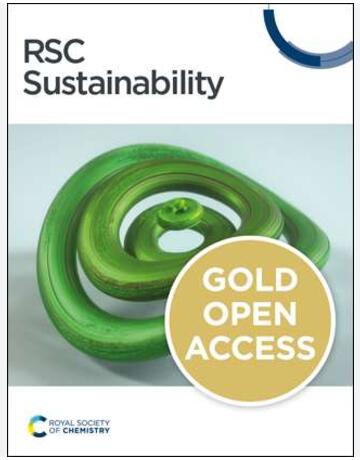Examining Adaptation and Resilience Frameworks: Data Quality’s Role in Supporting Climate Efforts
IF 3.3
3区 环境科学与生态学
Q2 ENVIRONMENTAL SCIENCES
引用次数: 0
Abstract
The current landscape of climate change adaptation and resilience policies, frameworks, and indicators is rapidly changing as nations, organizations, and individuals acknowledge the urgent need to address its impacts. Various methods for adaptation and resilience are developed and monitored through formal indicators. However, there are gaps in indicator development and monitoring, including the need for more indicators to address monitoring gaps, lacks in the availability of fit-for-purpose (quality and quantity) data sets, and interpretation challenges. Especially at the local level, these gaps are pronounced. In this study, we assessed current policies, frameworks, and indicators, and conducted semi-structured interviews with stakeholders. A key concern raised was the difficulty in handling insufficient, quality data, particularly in developing nations, hindering adaptation implementation. Respondents also noted the lack of a standardised approach/tool for planning, monitoring, and evaluation. To address this, stakeholders advocated for local indicators and a unified approach/tool. Comparable and consistent data, collected by qualified personnel, were emphasised. Effective adaptation plans are vital in responding to climate change, yet challenges persist in planning, implementation, and monitoring, reporting, and verification phases. A recommended solution involves a common measurement approach for adaptation and resilience, alongside tailored local strategies to ensure success of these plans.审查适应和恢复力框架:数据质量在支持气候努力中的作用
随着国家、组织和个人认识到应对气候变化影响的迫切需要,当前气候变化适应和恢复政策、框架和指标的格局正在迅速变化。制定了各种适应和恢复能力的方法,并通过正式指标进行监测。然而,在指标制定和监测方面存在差距,包括需要更多的指标来弥补监测差距,缺乏符合目的(质量和数量)的数据集,以及解释方面的挑战。特别是在地方一级,这些差距是明显的。在本研究中,我们评估了当前的政策、框架和指标,并对利益相关者进行了半结构化访谈。提出的一个关键问题是难以处理不足的高质量数据,特别是在发展中国家,这阻碍了适应的实施。答复者还指出,缺乏用于规划、监测和评价的标准化方法/工具。为解决这一问题,利益攸关方主张采用地方指标和统一的方法/工具。强调由合格人员收集的可比和一致的数据。有效的适应计划对于应对气候变化至关重要,但在规划、实施、监测、报告和核查阶段仍然存在挑战。建议的解决方案包括一种用于适应和复原力的通用测量方法,以及量身定制的地方战略,以确保这些计划的成功。
本文章由计算机程序翻译,如有差异,请以英文原文为准。
求助全文
约1分钟内获得全文
求助全文
来源期刊

Sustainability
ENVIRONMENTAL SCIENCES-ENVIRONMENTAL SCIENCES
CiteScore
6.80
自引率
20.50%
发文量
14120
审稿时长
17.72 days
期刊介绍:
Sustainability (ISSN 2071-1050) is an international and cross-disciplinary scholarly, open access journal of environmental, cultural, economic and social sustainability of human beings, which provides an advanced forum for studies related to sustainability and sustainable development. It publishes reviews, regular research papers, communications and short notes, and there is no restriction on the length of the papers. Our aim is to encourage scientists to publish their experimental and theoretical research relating to natural sciences, social sciences and humanities in as much detail as possible in order to promote scientific predictions and impact assessments of global change and development. Full experimental and methodical details must be provided so that the results can be reproduced.
 求助内容:
求助内容: 应助结果提醒方式:
应助结果提醒方式:


